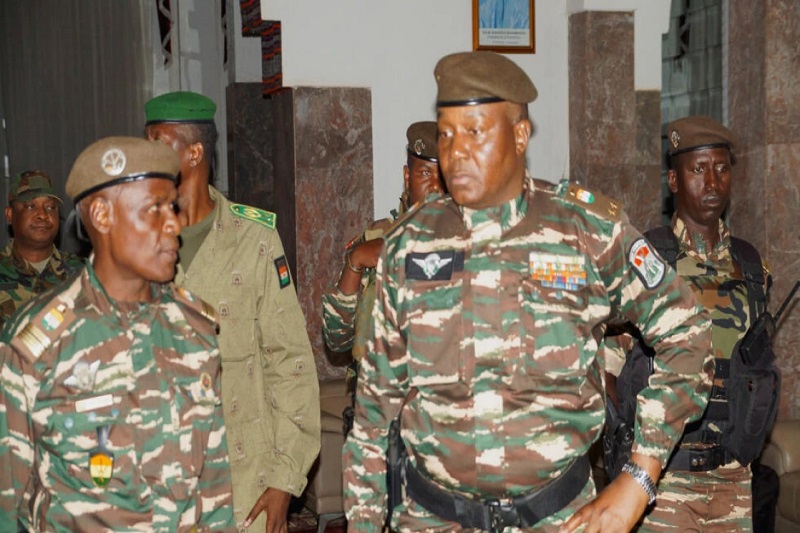Last updated on July 31st, 2023 at 08:44 am
On Sunday, heads of state will meet in Nigeria to decide how to increase pressure on army commanders to reinstate constitutional order.
West African leaders met on Sunday for an emergency summit to decide how to put more pressure on the army to restore constitutional order after a coup last week. Military leaders in Niger warned against any armed intervention in the country.
The heads of state of the eight-member West African Economic and Monetary Union and the 15-member Economic Community of West African States (ECOWAS) will meet in Nigeria and have the option of suspending Niger from their institutions, cutting off access to the regional financial market and central bank, or closing borders.
The leaders of West Africa are concentrating on ways to reinstate President Mohamed Bazoum, who was deposed when Gen Abdourahamane Tchiani was proclaimed the new ruler.
Related Posts
Leaders of the coup in Niger issued a warning prior to the summit on Sunday.
In a statement read out on state TV on Saturday night, junta spokesperson Colonel Amadou Abdramane stated that the purpose of the ECOWAS meeting was to approve a plan of aggression against Niger through an impending military intervention in Niamey in cooperation with other African nations that are not members of ECOWAS and some western nations.
On Saturday evening, the junta released a second statement urging residents of the capital to take to the streets at 7 a.m. local time to protest ECOWAS and show their support for the new military authorities.
Many of Niger’s neighbors and international allies have denounced the military takeover and demanded that Bazoum be put back in charge. They have also refused to recognize the new leaders.
Even though the European Union, France, and other countries say they still recognize Bazoum as the legitimate president and he has been able to talk to some of the most important people in the world, no one has heard from Bazoum since early Thursday, when he was locked up in the presidential palace.
The financial assistance and security coordination with Niger was suspended on Saturday by the European Union and France.
Josep Borrell, the EU’s in charge of foreign policy, announced the sanctions by stating that “the European Union does not recognize and will not recognize the authorities from the putsch in Niger,” adding that Mohamed Bazoum “remains the only legitimate president of Niger” and urging for his immediate release.
The African Union demanded that the military return to their barracks and reestablish constitutional order within 15 days in a statement following an emergency meeting on Friday. What would occur after that was not specified?
The news will come as a shock to Niger, which has been a major beneficiary of aid from the West, including the US and the EU, as an ally in the struggle against jihadist insurgencies that have been causing instability in the larger Sahel region.
Many people in the international community view the government of Niger as a fortress against Islamist militancy in a vast, arid region beset by security issues. Despite having to withdraw from neighboring Mali in recent years, France still has 1,500 soldiers in Niger. The future of their deployment may be in doubt if Bazoum is overthrown.

